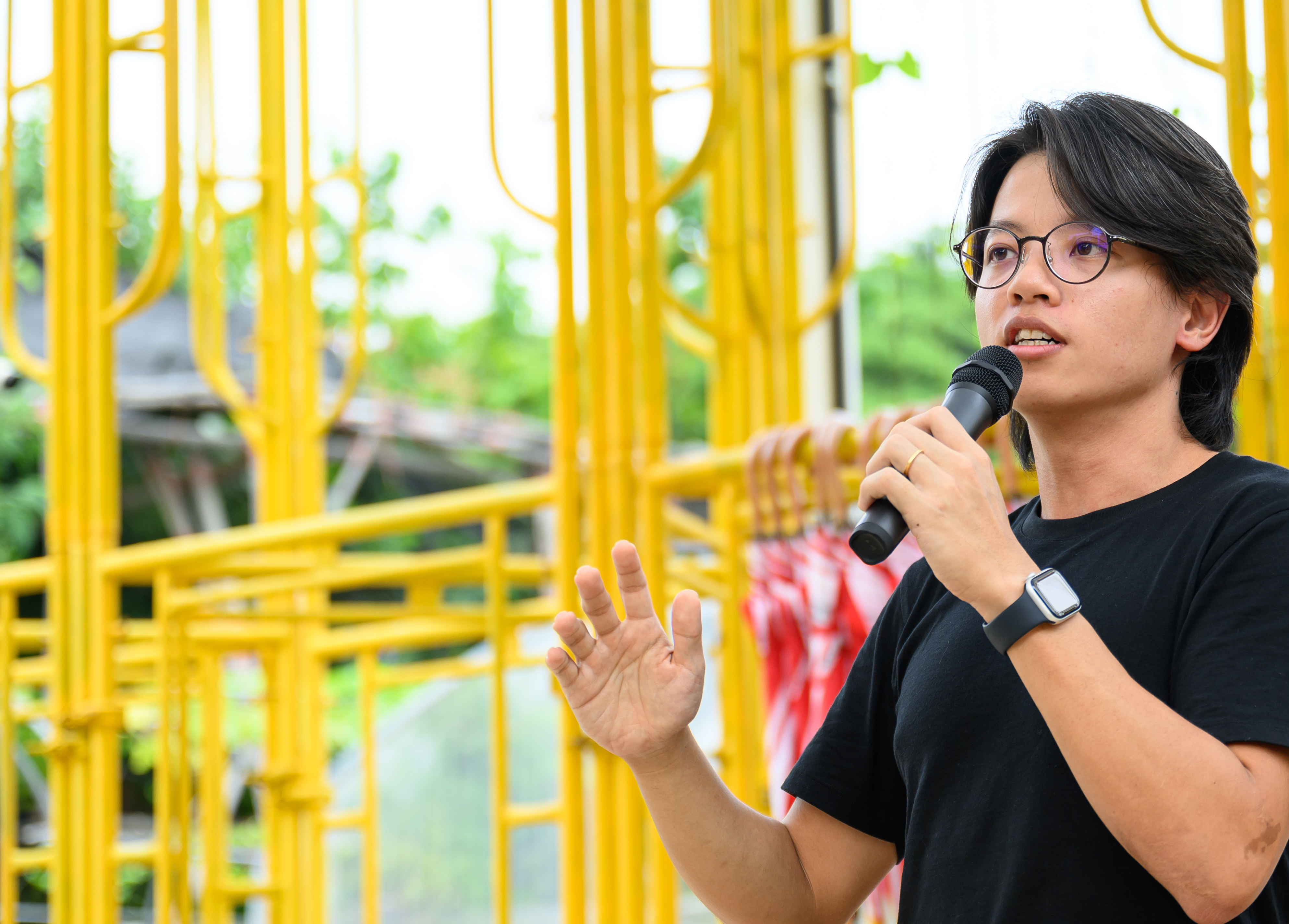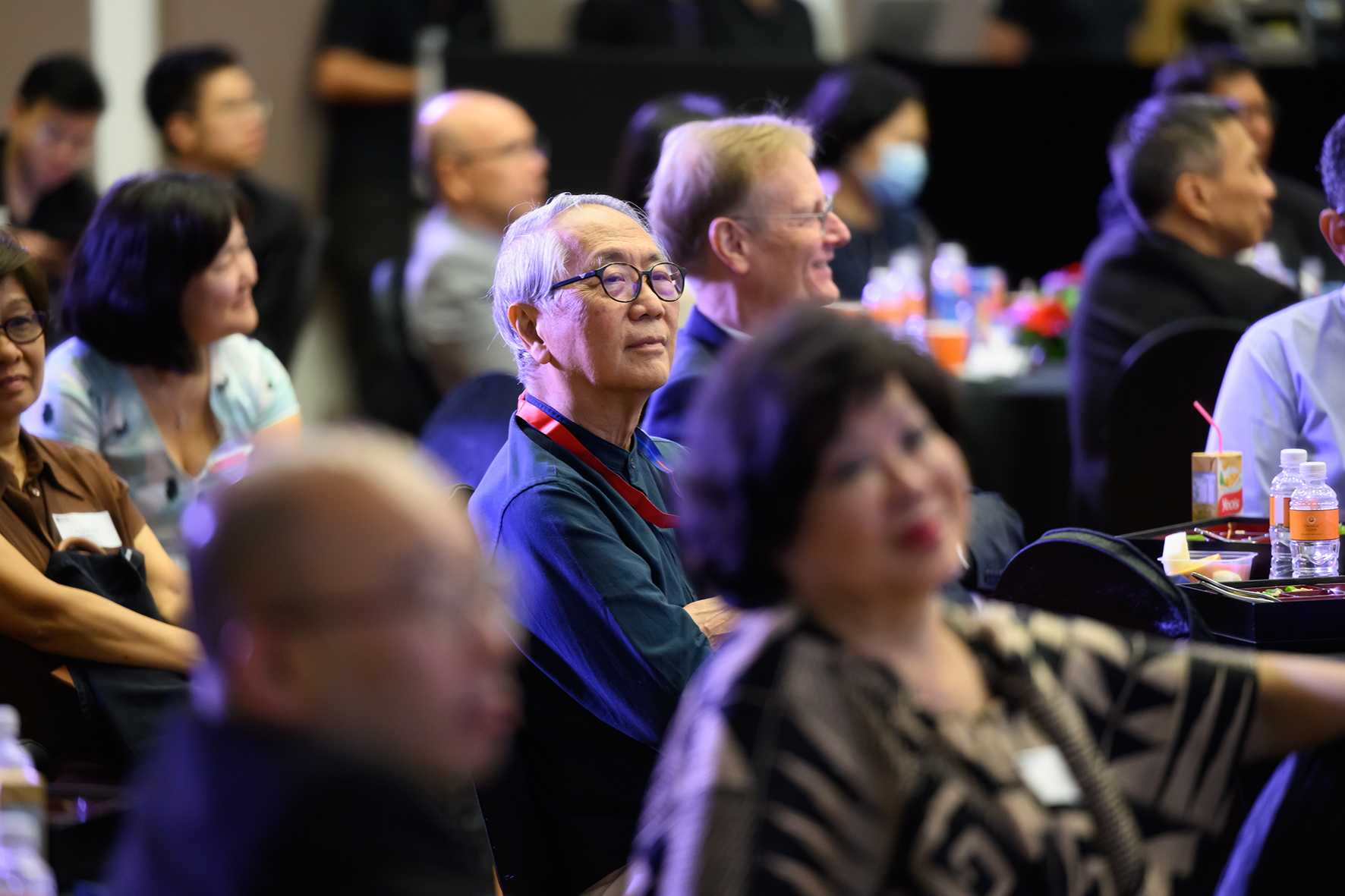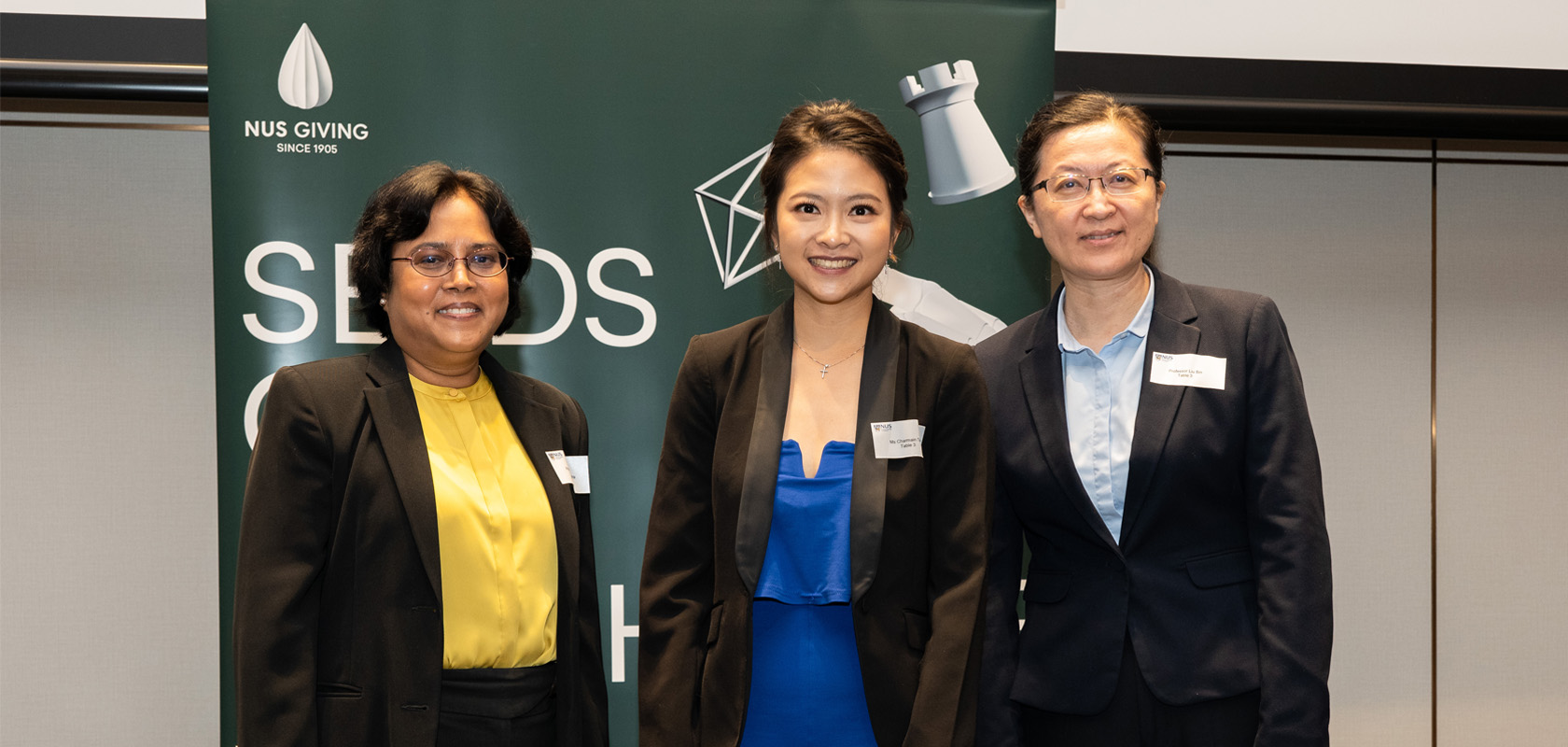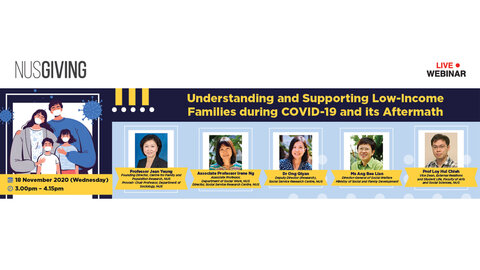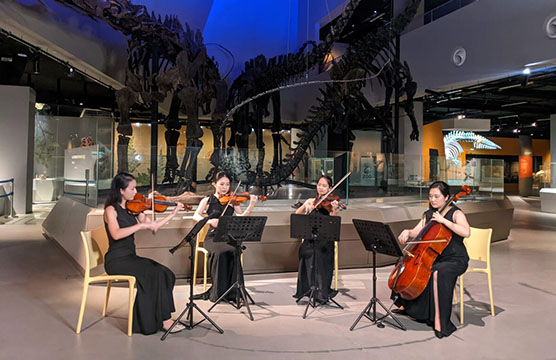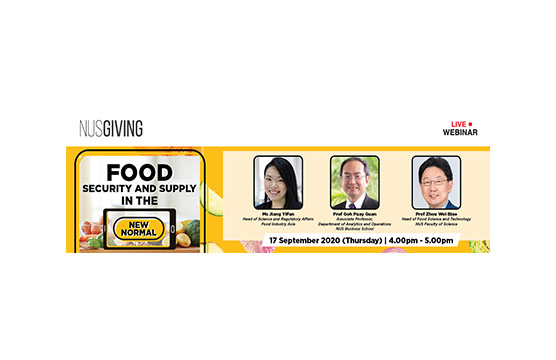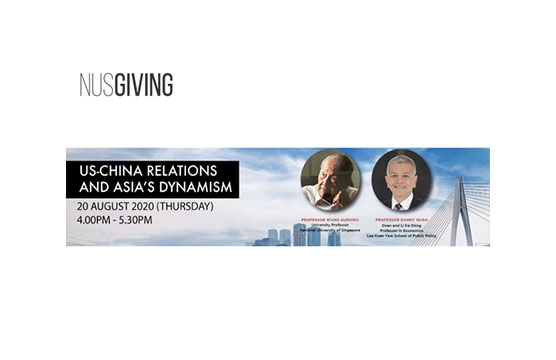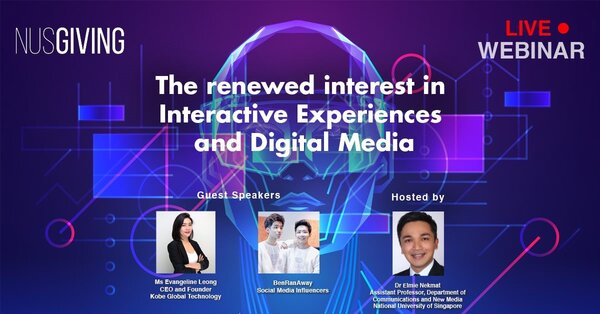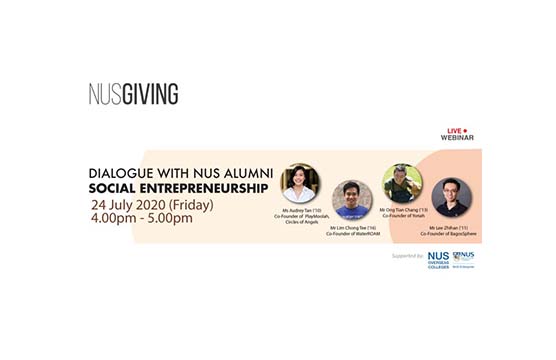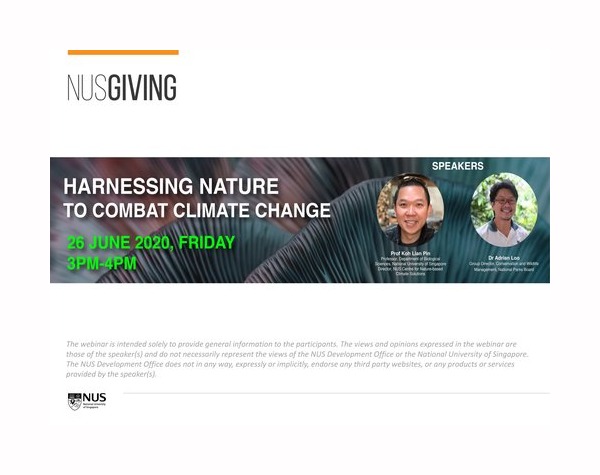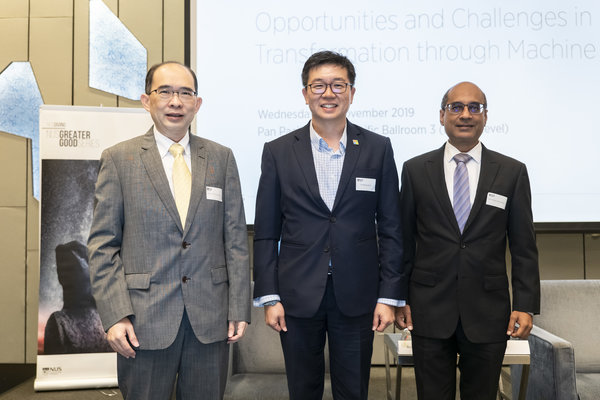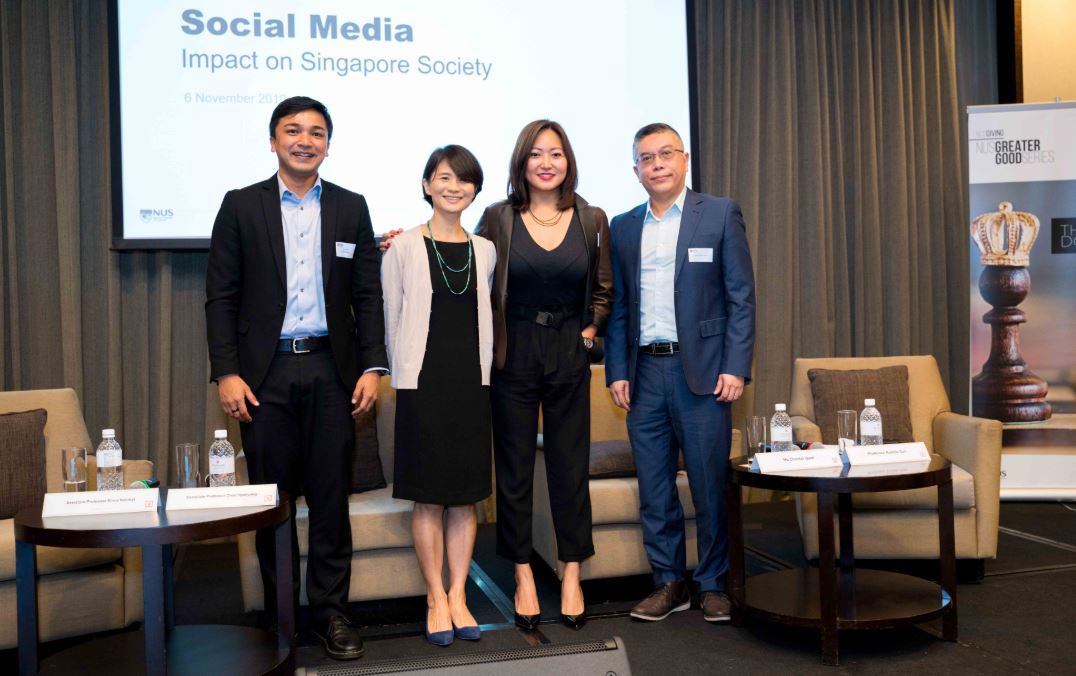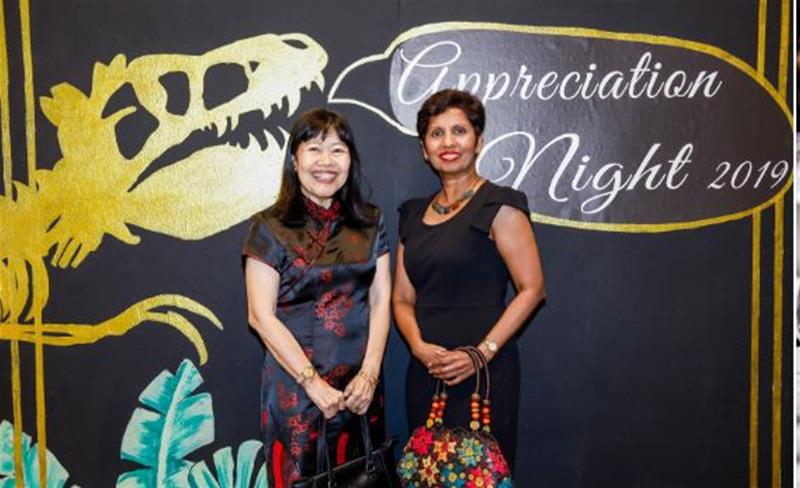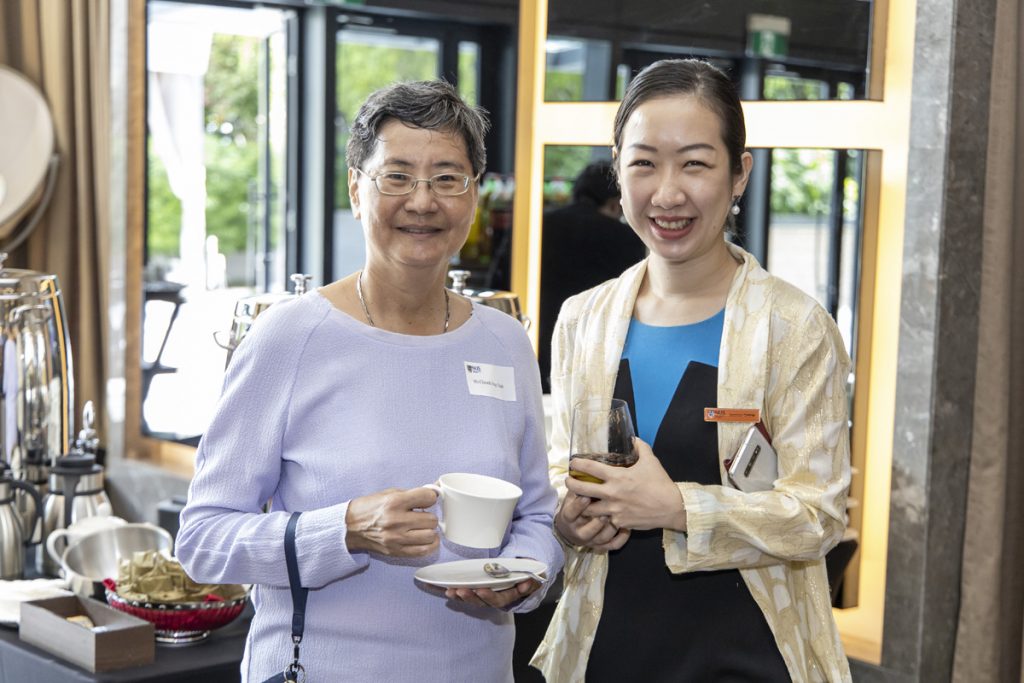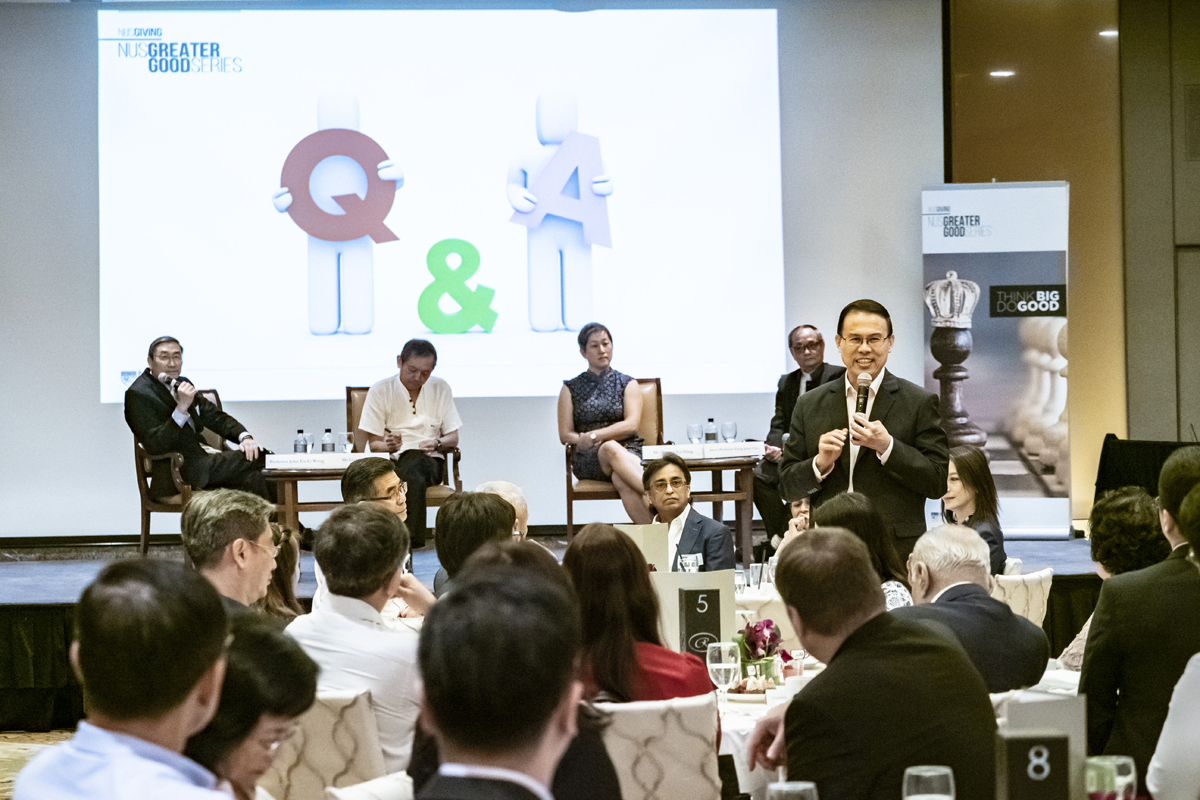See the Possibility Series: Helping Nature Help Us
Jul 21, 2023
As part of the See the Possibility Campaign, the Tropical Marine Science Institute (TMSI), which manages the St John's Island National Marine Laboratory (SJINML), welcomed the NUS Giving community.
With a specific emphasis on Urbanisation and Sustainability, the See the Possibility Series “Helping Nature Help Us” provided our guests with the opportunity to embark on an island tour and experience the marine laboratory at St John's Island. This immersive encounter enabled them to acquire invaluable knowledge about the importance of nature and the crucial role of research in preserving the environment.

Prof Koh Lian Pin, Director of the NUS Centre for Nature-based Climate Solutions (CNCS)
Prof Koh Lian Pin, Director of the NUS Centre for Nature-based Climate Solutions (CNCS), in his opening speech, shared that Singapore, with its diverse forests, coastlines, and urban pressures, serves as a microcosm of the region. This region faces numerous challenges, including the need to explore new species, discover novel uses, and understand the ecosystem services provided by nature. Additionally, it is essential to address issues revolving the disruption and degradation of the environment.
“These challenges highlight the importance of continued research into the environmental sciences. Research into how Singapore can rise to these challenges can help to equip society with the knowledge to make informed decisions about the natural environment and the ways that they are used and managed,” said Prof Koh.
Beyond the realm of research, Prof Koh stressed the need for cultivating partnerships, promoting collaboration, and striving towards a shared vision of sustainability. He encouraged all participants to not only explore the wonders of the island but also to forge stronger bonds and expand possible research endeavours together.
The island tour started at the mangrove patch, educating participants about the significance of mangroves as an ecosystem. Besides providing food, fibre, and medicine, mangroves also protect coastlines during storms. However, urbanisation and population growth have led to the decline of mangrove forests. Singapore now has less than 5 percent of its original mangrove forests from the 1800s. Therefore, ongoing efforts to preserve and understand mangrove forests are important in coastal protection, biodiversity support, and climate change mitigation.
The group then proceeded to the Lazarus link bridge, and were greeted by a captivating view of a fish farm. This stop shed light on the challenges facing Southeast Asian seas, including overfishing and ocean acidification. Singapore's aquaculture industry is crucial in meeting the nation’s seafood demand and reducing strain on wild fish stocks. Responsible practices, including technology adoption, were emphasised for enhanced productivity, resilience, and sustainability.
At Eagle Bay, Singapore's top-rated beach, patches of beautiful seagrass reside. Participants discovered the ecological value of seagrass, which helps combat climate change by capturing carbon rapidly and protects coastlines from erosion. Ongoing research focuses on understanding seagrass better and developing effective management strategies to preserve this vital marine habitat.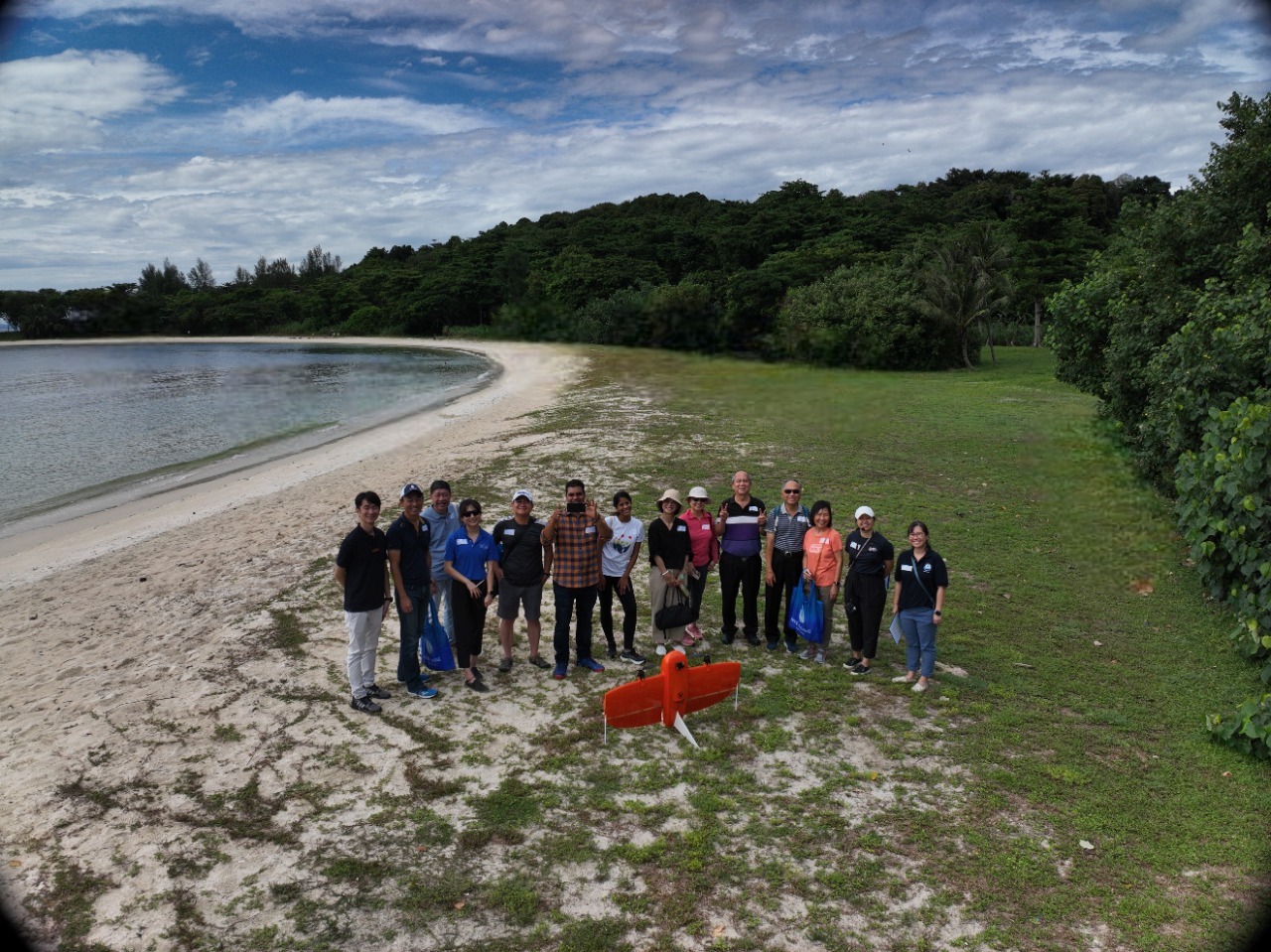
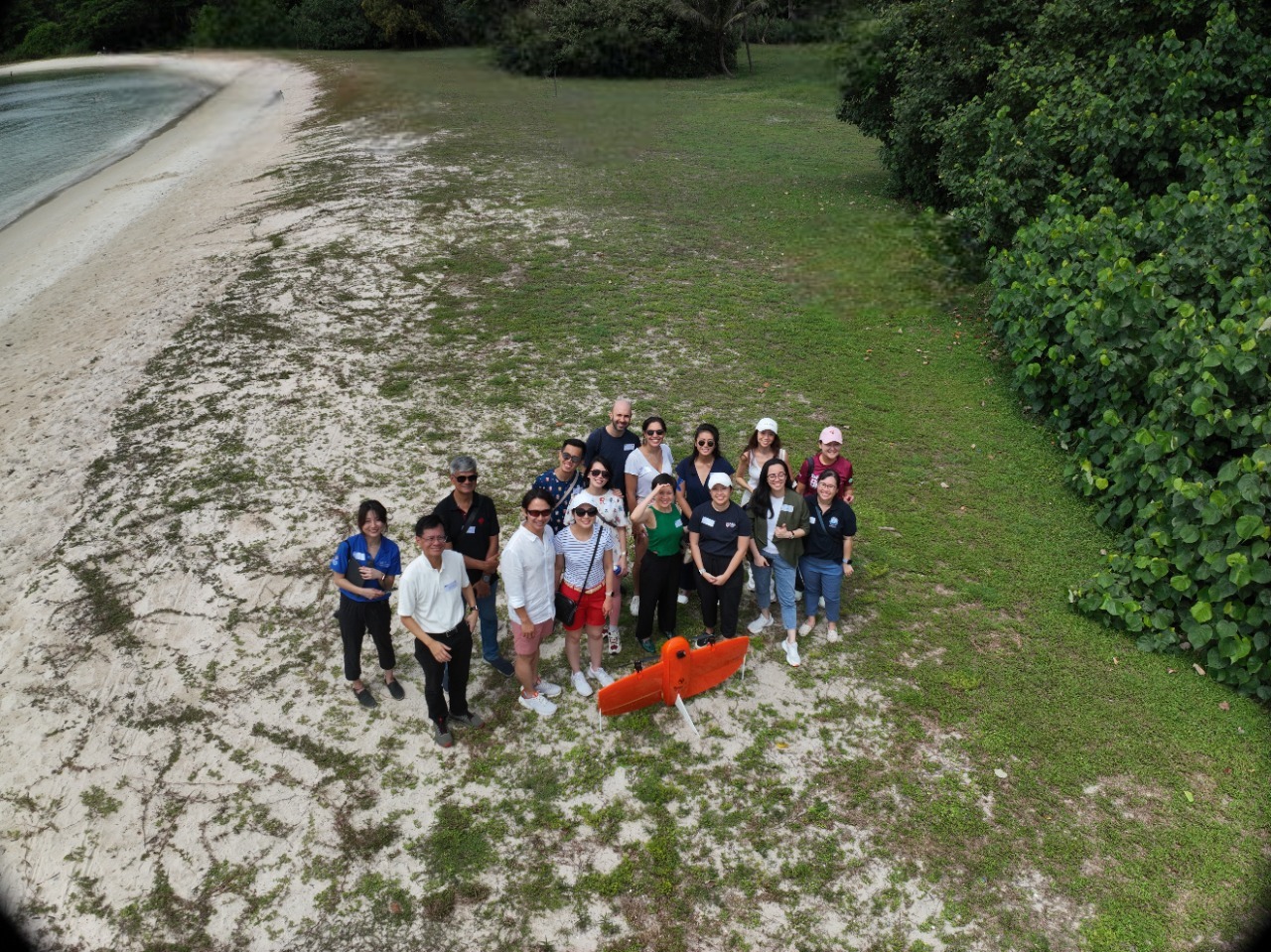
Group of guests captured via drone at Eagle Bay
The tour also featured an impressive drone demonstration, showing the potential of utilising technology and research in addressing environmental issues. As a memorable touch, the drone captured pictures of the participants, leaving them with a unique souvenir from the tour.
Apart from the island tour, participants were able to explore the marine laboratory. The public gallery provided an opportunity to learn about the dedicated efforts of CNCS, TMSI and SJINML in science communication and public outreach.
At the controlled lab, participants delved into the topic of climate change and its impact on Singapore. They witnessed simulations of potential climate change scenarios and their effects on marine ecosystems. One notable example was the study on the relationship between rising sea temperatures and jellyfish blooms. Interactive experiments conducted in tanks provided a deeper understanding of the scientific processes behind climate change predictions.

Participants observing jellyfish in a controlled lab environment with stimulated temperatures
Moving on to the outdoor tanks, participants were introduced to the biodiversity and conservation efforts at TMSI. Overfishing and the aquarium trade pose significant threats to marine biodiversity in Southeast Asia. To mitigate the depletion of coral reefs, researchers are exploring maricultural options for giant clams, cowries, and corals.

TMSI's innovative approach to promoting coral growth and colonisation using Lego structures and a lazy Susan mechanism
Furthermore, participants had the opportunity to witness remarkable coral reef restoration and conservation efforts. TMSI adopts an innovative approach, utilising Lego structures and a lazy Susan mechanism, to help promote coral growth and colonisation, providing hope for the revival of underwater ecosystems.

Visitors observing a diverse range of marine organisms at the Learning Lab
The journey through the marine laboratory concluded at the Learning Lab, where the guests explored a diverse range of topics, including the importance of biodiversity, linkages between biodiversity and climate change, acoustics, and the exploration of deep-sea creatures. The experience served as a reminder that there is still much to learn and discover in these areas. Expeditions to explore the deep sea were mentioned as a testament to the boundless possibilities of research and technology.
Through this event, the participants gained a deeper understanding of the intricate relationships between ecosystems and human activities, inspiring them to take action in preserving and protecting our natural world.
For further information on the NUS Giving See the Possibility Series, contact the Events team at dvoevents@nus.edu.sg.


